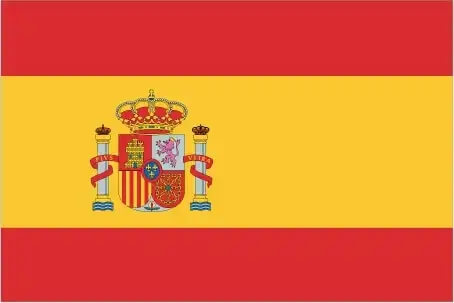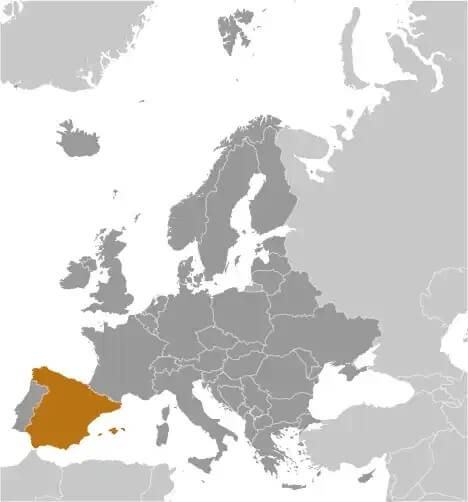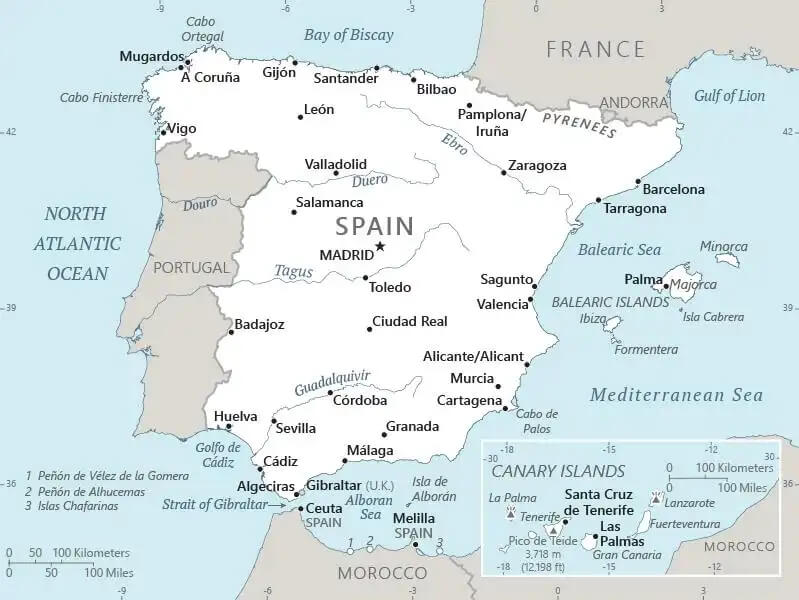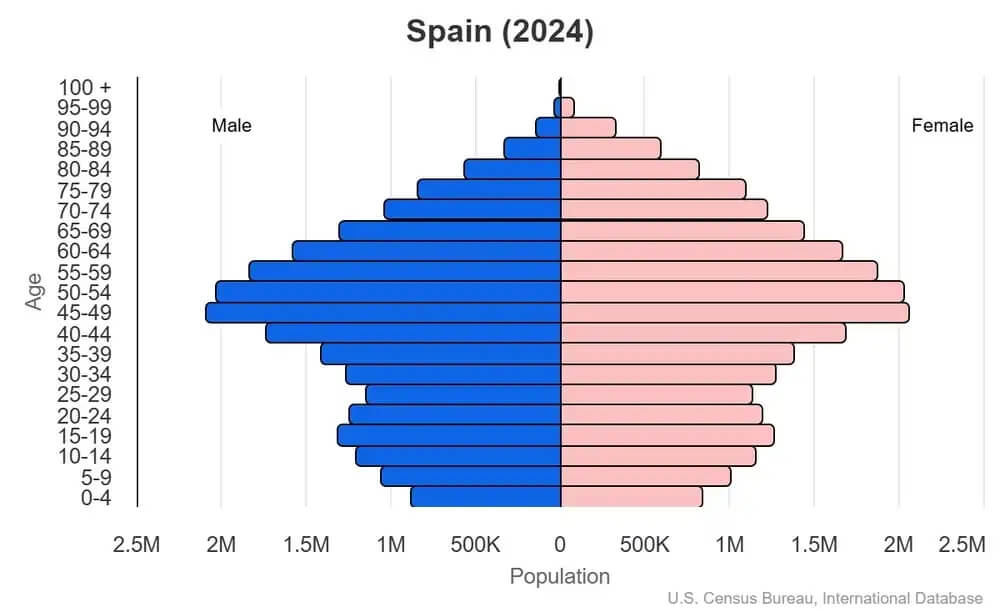World Book
Spain
World Book Index
76


With a score of 76, the country is ranked 38th out of 158 countries in the World Book ranking. (more information)
Introduction
Spain's powerful world empire of the 16th and 17th centuries ultimately yielded control of the seas to England. A peaceful transition to democracy after the death of dictator Francisco FRANCO in 1975 and rapid economic modernization after Spain joined the EU in 1986 have given Spain a dynamic and rapidly growing economy.
Neighboring countries
Andorra - France - Morocco - Portugal
Geography
Area
total: 505,370 sq km
land: 498,980 sq km
water: 6,390 sq km
Climate
temperate; clear, hot summers in interior, more moderate and cloudy along coast; cloudy, cold winters in interior, partly cloudy and cool along coast
Natural resources
coal, lignite, iron ore, copper, lead, zinc, uranium, tungsten, mercury, pyrites, magnesite, fluorspar, gypsum, sepiolite, kaolin, potash, hydropower, arable land
People and Society
Population
total: 47,280,433 (2024 est.)
Ethnic groups
Spanish 84.8%, Moroccan 1.7%, Romanian 1.2%, other 12.3% (2021 est.)
Languages
Castilian Spanish (official) 74%, Catalan (official in Catalonia, the Balearic Islands, and the Valencian Community) 17%, Galician (official in Galicia) 7%, Basque (official in the Basque Country and Navarre) 2%, Aranese (official in part of Catalonia) <5,000 speakers
Religions
Roman Catholic 58.2%, atheist 16.2%, agnostic 10.8%, other 2.7%, non-believer 10.5%, unspecified 1.7% (2021 est.)
Population growth rate
0.12% (2024 est.)
Government
Government type
parliamentary constitutional monarchy
Capital
name: Madrid
Executive branch
chief of state: King FELIPE VI (since 19 June 2014)
head of government: President of the Government of Spain (prime minister-equivalent) Pedro SANCHEZ PEREZ-CASTEJON (since 2 June 2018)
Diplomatic representation in the US
chief of mission: Ambassador Ángeles MORENO Bau (since 27 February 2024)
Diplomatic representation from the US
chief of mission: Ambassador (vacant); Chargé d’Affaires Rian Harker HARRIS (since 15 July 2024); note - also accredited to Andorra
Economy
Economic overview
high-income, core-EU and eurozone economy; strong growth driven by public consumption, tourism, and other service exports; tight labor market despite high structural unemployment; efforts to narrow persistent fiscal deficits through tax and spending measures; high but declining unemployment supported by job growth and immigration
Real GDP (purchasing power parity)
$2.361 trillion (2024 est.)
$2.289 trillion (2023 est.)
$2.229 trillion (2022 est.)
Real GDP per capita
$48,400 (2024 est.)
$47,300 (2023 est.)
$46,600 (2022 est.)
Exports
$642.358 billion (2024 est.)
$616.648 billion (2023 est.)
$573.598 billion (2022 est.)
Exports - partners
France 15%, Germany 10%, Portugal 9%, Italy 9%, UK 6% (2023)
Exports - commodities
cars, packaged medicine, refined petroleum, vehicle parts/accessories, garments (2023)
Imports
$568.502 billion (2024 est.)
$552.948 billion (2023 est.)
$561.448 billion (2022 est.)
Imports - partners
Germany 11%, China 10%, France 10%, Italy 7%, USA 7% (2023)
Imports - commodities
crude petroleum, cars, garments, vehicle parts/accessories, natural gas (2023)
Human Development Index
The country's Human Development Index (HDI) is 0.918, ranking it 28th out of 193 countries tested. (more information)
World Happiness Report
The World Happiness Report ranked the country 57th out of 158 countries tested with a score of 6.043. (more information)



